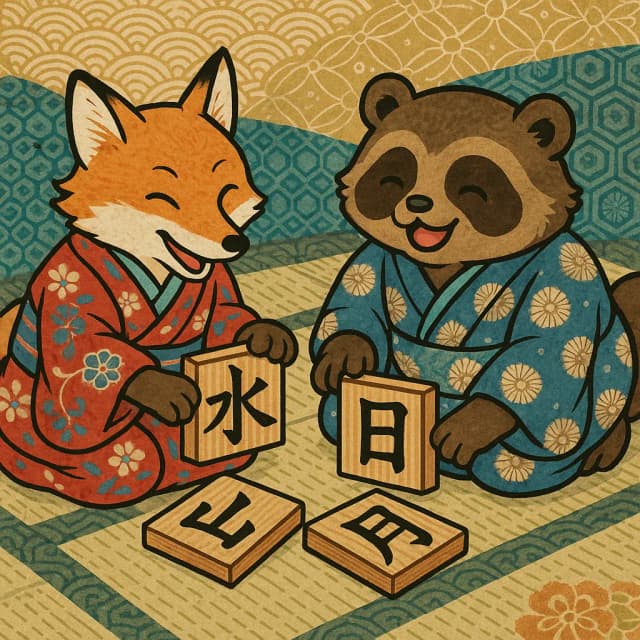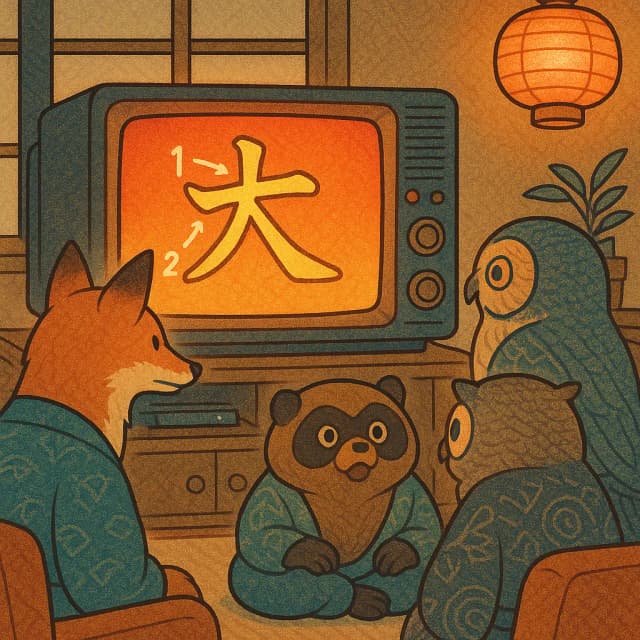Kanji 万 - ten thousand
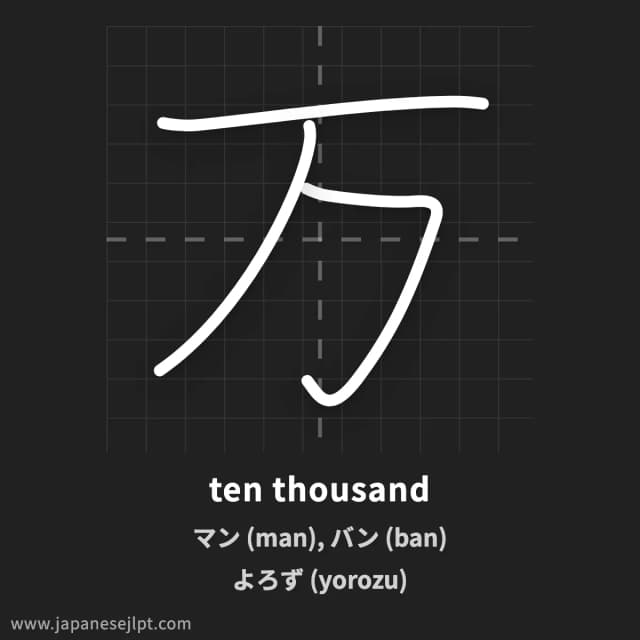
Kanji 万 means ten thousand. Onyomi readings are マン (man), バン (ban) . Kunyomi readings are よろず (yorozu).
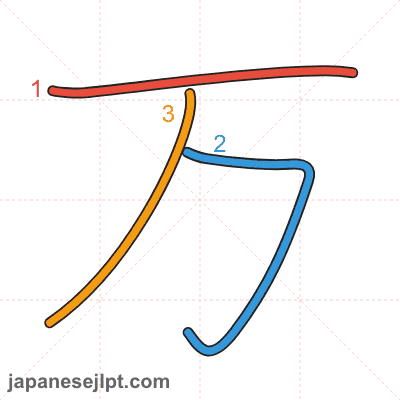
Stroke order animation (3 strokes)
Stroke Order Diagram
Each box shows the kanji up to that stroke. Red dot indicates stroke start point.
Readings of 万
音On'yomi (音読み)
訓Kun'yomi (訓読み)
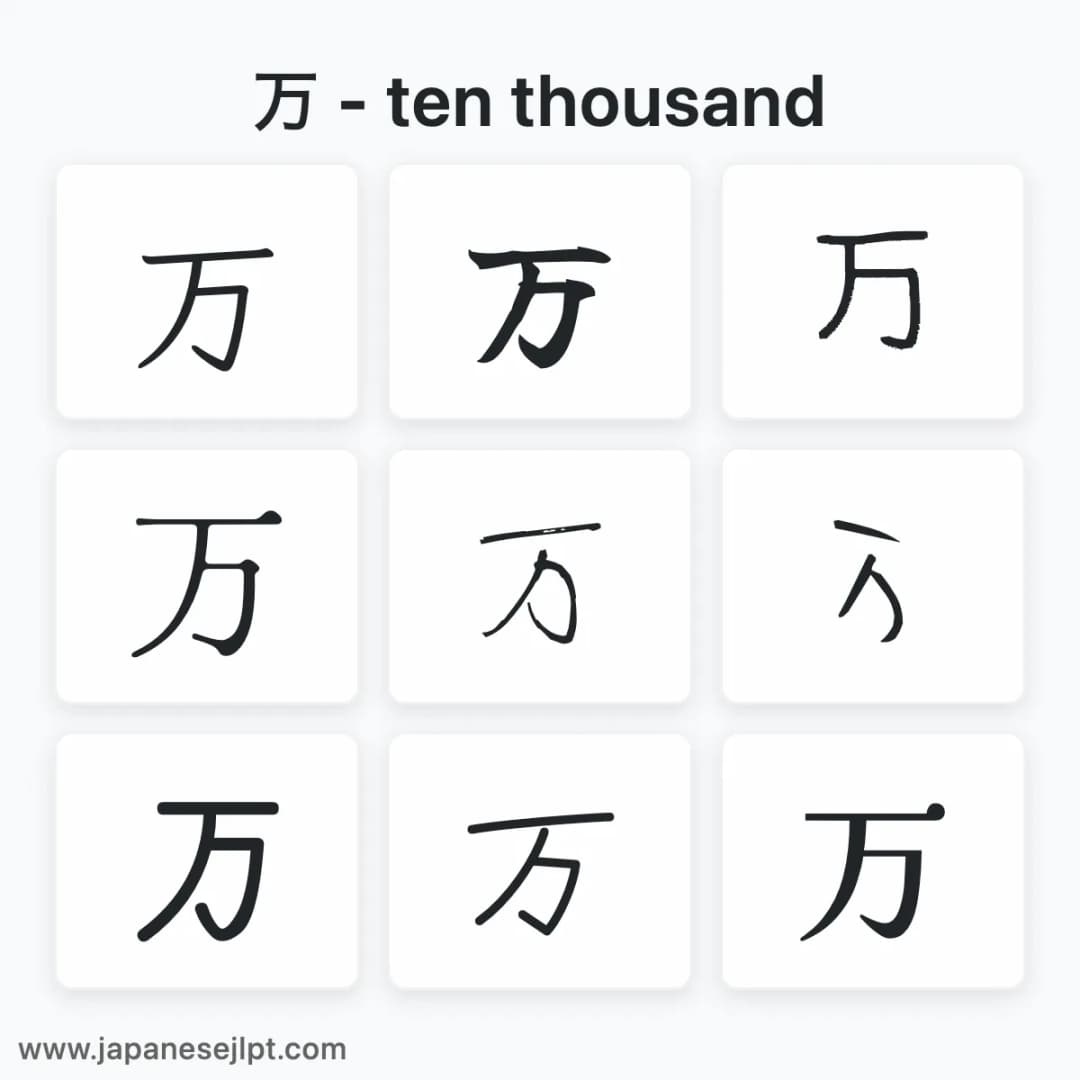
万 in different fonts
Vocabulary with 万
| Audio | English | Romaji | Japanese | Kana |
|---|---|---|---|---|
| ten thousand | ichiman | 一万 | いちまん | |
| million | hyakuman | 百万 | ひゃくまん |
More Information about 万
Why is 万 (man) useful for big numbers?
Japanese counts in units of 10,000. So:
- 10,000 = 1万 (ichi man)(いちまん)
- 100,000 = 10万 (jū man)(じゅうまん)
- 1,000,000 = 100万 (hyaku man)(ひゃくまん)
- 100,000,000 = 1億 (ichi oku)(いちおく) (next unit after 万 (man)) This is different from English, which groups by thousands.
Common words with 万 (man)
- 万円 (man'en)(まんえん): ten-thousand yen units (e.g., 五万円 (go man'en) = 50,000 yen)
- 万能 (bannō)(ばんのう): all-purpose; versatile
- 万全 (banzen)(ばんぜん): perfect; thorough
- 万一/万が一 (man'ichi/mangaichi)(まんいち/まんがいち): if by any chance; in the unlikely event
- 万歳 (banzai)(ばんざい): “Banzai!”; long live; hooray
- 万物 (banbutsu)(ばんぶつ): all things; everything
- 万年筆 (mannenhitsu)(まんねんひつ): fountain pen
- 万華鏡 (mangekyō)(まんげきょう): kaleidoscope
Why do we sometimes read 万 (man) as バン (ban) instead of マン (man)?
In some compounds, the sound shifts from マン (man) to バン (ban) for euphony (easy flow). Examples: 万能 (bannō)(ばんのう), 万全 (banzen)(ばんぜん), 万歳 (banzai)(ばんざい), 万国 (bankoku)(ばんこく). You’ll still hear マン (man) in many others: 万円 (man'en)(まんえん), 万年筆 (mannenhitsu)(まんねんひつ).
Cultural/official form: what is 萬 (man)?
In formal money writing, Japanese sometimes use special number forms (大字・だいじ (daiji)) to prevent tampering. The daiji (and traditional character) for 万 (man) is 萬 (man). It’s harder to alter than 万 (man). Example on a receipt/contract: 萬円 (man'en).
Idioms and set phrases with 万 (man)
- **万事 (banji)**うまくいく: everything will go well
- 万古不易 (banko fueki)(ばんこふえき): eternally unchanging
- 万歩計 (manpokei)(まんぽけい): pedometer (literally “ten-thousand-step meter”)
- 万里の長城 (banri no chōjō)(ばんりのちょうじょう): the Great Wall of China (a fixed name; good for reading practice)
Tips to avoid common mistakes
- Remember Japanese groups by 10,000: 100,000 = 10万 (jū man), not “100千”.
- 万一/万が一 (man'ichi/mangaichi) means unlikely event, not “ten thousand one”.
- Watch the sound change: マン (man) ↔ バン (ban) in compounds.
